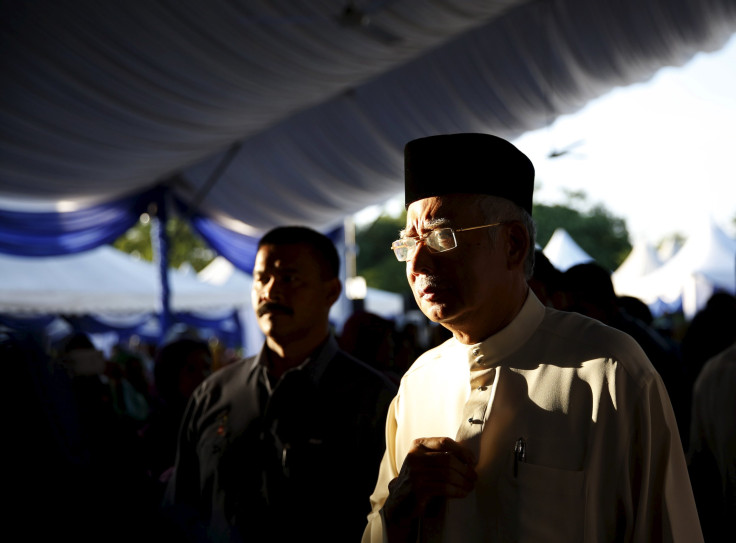Malaysian Prime Minister Najib Razak Threatens Legal Action Against The Wall Street Journal

Attorneys representing Malaysian Prime Minister Najib Razak threatened to take legal action against the Wall Street Journal over allegations of corruption, and claimed that the report was part of a plot against him.
Najib has been accused of siphoning off $700 million from a state-controlled investment fund into his personal funds, as revealed in a Wall Street Journal report on Friday. Najib has denied the allegations, calling them "vile" and "malicious" and threatened to sue the publication.
"The article is tainted with numerous allegations against our client which involved several companies and transactions," Najib's legal team said in a statement on Wednesday. "Once our client has obtained all necessary facts and the position of WSJ is ascertained, we have strict instructions to immediately exhaust legal avenues and remedies."
The Journal report stated that government investigators had found evidence that the money was transferred through a chain of state agencies, banks and companies linked to the investment vehicle 1Malaysia Development Berhad (1MDB), before ultimately ending up in Najib's accounts. The 1MDB has denied any wrongdoing. Investigators have frozen six accounts linked to the allegations, but have not provided more details on the banks or individuals involved.
Meanwhile, Singapore's central bank also said it is cooperating with Malaysian authorities after it was revealed that $681 million of the money allegedly transferred came from a Singapore-based account of Falcon Private Bank, a Swiss company headquartered in the British Virgin Islands and owned by an Abu Dhabi sovereign wealth fund, according to the Journal. Falcon Private Bank has reportedly confirmed that it is in contact with Singaporean authorities and would "cooperate to allow full transparency."
"Financial institutions in Singapore are required to conduct rigorous customer due diligence, regular account reviews, and to monitor for and report any suspicious transactions," the Monetary Authority of Singapore reportedly said. "MAS will follow up with the financial institutions concerned and not hesitate to take any action if there are regulatory breaches. Due to on-going investigations in Malaysia, we are unable to provide more details."
The 1MDB was launched by Najib in 2009, who still serves as its advisory board chair. It has been accused of opacity and mismanagement. The fund is currently burdened with an estimated $11 billion in debt. Several prominent Malaysian figures including former premier Mahathir Mohamad and two opposition parties have called for criminal investigations into 1MDB.
The allegations were first made just before the 2013 parliamentary elections that saw Najib's United Malays National Organization suffer heavy electoral losses, but it retained a majority of seats. After significant pressure, Najib ordered his auditor-general to investigate 1MDB's records in March, although the results have not been released.
© Copyright IBTimes 2024. All rights reserved.











